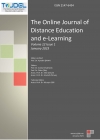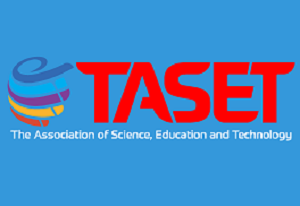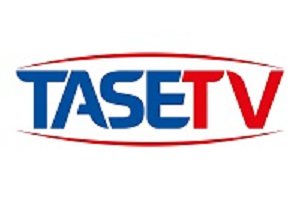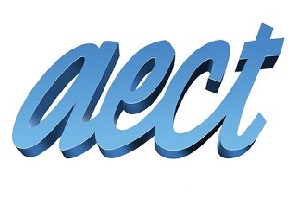TOJDEL - Volume 6 - Issue 3 - July 2018
 GOING ELECTRONIC: ANALYZING THE INTRICACIES OF TRANSITIONING FROM PRINT AT A FAST-GROWING SOUTHERN AFRICAN UNIVERSITY
GOING ELECTRONIC: ANALYZING THE INTRICACIES OF TRANSITIONING FROM PRINT AT A FAST-GROWING SOUTHERN AFRICAN UNIVERSITY Daurice Kanjeza Nyirongo, Mapopa William Sanga
Abstract:
The present study analyzed challenges faced by a fast-growing southern
African institution of higher learning as it transformed its print-based distance
education programs to online. The study also analyzed potential solutions to the
challenges in the institutions’ bid to thrash out a vibrant online learning system. The
transition process began with the initial implementation of a blended mode of
delivery which would latterly culminate into a fully online system. The study
demonstrated that in the absence of availing resources, it only takes determinism and
proper planning to embark on a successful transition process to online learning. The
study presents implications to administrators, instructional designers and faculty.
 IMPLEMENTING MOORE'S MODEL OF INTERACTION IN A FLIPPED-CLASS INSTRUCTION 10
IMPLEMENTING MOORE'S MODEL OF INTERACTION IN A FLIPPED-CLASS INSTRUCTION 10 Zamzami Zainuddin
Abstract:
This study aimed at identifying undergraduate students’ interaction in
learning English language using the flipped-class instructional model, based on afourth
component of Moore's model of interaction. There were four aspects to
identify, namely: student-peers' interaction, student-instructor interaction, student–
contents interaction and student-technology interaction. The study employed a
mixed method research approach, the Questionnaire survey and focus group
interview were used to assemble in-depth information. 31 respondents answered the
questionnaire and 10 respondents were involved in a focus group discussion. The
result revealed that students' interactions were well established in the flipped-class
environment, including interaction with peers, instructor, content, and technology.
Students’ interactions were not only established in-class activities but also continued
beyond the walls of the classroom and beyond the normal class hours. These
findings confirmed that students were able to learn the content not only from the
instructor but also from peers. Pre-class video recorded lectures were also allowed
students to become more independent outside of the classroom learning. Besides, the
interaction was well-established between students and content - allowed students to
pause and replay the videos as often as they needed without having to lose
themselves in note-taking. Based on the analyses, this study has contributed to better
understanding of flipped-class instruction in teaching-learning English in the
Indonesian context.
 SOCIAL MEDIA TECHNOLOGIES AND HIGHER EDUCATION: EXAMINING ITS USAGE AND PENETRATION LEVEL AS EDUCATIONAL AIDS IN INDIA
SOCIAL MEDIA TECHNOLOGIES AND HIGHER EDUCATION: EXAMINING ITS USAGE AND PENETRATION LEVEL AS EDUCATIONAL AIDS IN INDIA Mangala Vadivu Vivakaran
Abstract:
Social media platforms have become an indispensable part of people’s
lives in the digital era. Correspondingly, the educational spectrum is also foreseen to
experience various pedagogical transformations owing to the continuous rise in the
usage of web 2.0 tools across the globe. The expanding thesaurus of social media
applications (Social Networking, blogs, wikis, hashtagging, etc.) is observed to aid
the growth of several informal pedagogical channels that can foster the development
of networked, collaborative and constructive virtual learning environments.
In order to gain a better understanding regarding the educational value of the web
2.0 technologies, the present study aimed to identify the reception and usage of
various social media platforms in the educational context. It proposed to analyze the
extent to which social media channels are being utilized for the purpose of
knowledge sharing, knowledge creation and knowledge acquisition. An extensive
survey was conducted among the faculty members of Tamil Nadu in India - a state
known for its high academic output.
The study showcased that the penetration level of social media platforms among the
higher educational institutions in Tamil Nadu is still in its infancy. Though a large
number of faculty members are currently employing these platforms for gathering
and sharing educational information and resources, only a very few were
contributing new learning resources/content back to these platforms.But even in its
infancy, the growing adoption of the social web by faculty members has initiated a
revolution in the contemporary educational landscape thereby providing more
enhanced learning experiences for the students.
 STUDENT SATISFACTION AS DETERMINANT OF ACADEMIC SUCCESS OF DISTANCE LEARNERS: A STUDY ACROSS DISTANCE LEARNING COURSES
STUDENT SATISFACTION AS DETERMINANT OF ACADEMIC SUCCESS OF DISTANCE LEARNERS: A STUDY ACROSS DISTANCE LEARNING COURSES Mamta Garg
Abstract:
Distance learning programs gives opportunity for higher education to all
who are otherwise not able to enrol on-campus due to various reasons but seeks
knowledge. Being the heterogeneous group, distance learners’ may have different
expectation from distance learning system which consequently may affect their
success in distance learning. This study was planned to find out the influence of
learners’ satisfaction in distance education in determining academic success of
distance learners in undergraduate, post-graduate and professional courses. For the
purpose, sample of 493 distance learners was selected from these three categories of
courses and administered with Student Satisfaction Scale which had six dimensions.
The findings of the study indicated that student satisfaction was a significant
determinant of academic success of distance learners across the courses but different
dimensions of student satisfaction were found to be related with their success in
undergraduate, post-graduate and professional courses.
 STUDENTS AS CONSUMERS: USER RESPONSES TO MONEY-BACK GUARANTEES IN HIGHER EDUCATION ON REDDIT
STUDENTS AS CONSUMERS: USER RESPONSES TO MONEY-BACK GUARANTEES IN HIGHER EDUCATION ON REDDIT Nicholas T. Tatum, T. Kody Frey
Abstract:
There has been an evidenced growth of student consumerism in the
industry of higher education. This consumer-oriented perspective leads to increased
levels of student entitlement, directly impacting students’ expectations for the
learning environment. The present study employs thematic analysis procedures to
explore students’ reactions to an offer by Udacity, an online provider of massive
open online courses (MOOCs), to provide money-back guarantees to students who
fail to obtain a job after graduation. Implications for growing levels of student
entitlement, as well as strategies to combat them, are discussed.
 SYNCHRONOUS E-LEARNING PERFORMANCE IN RELATIONS TOTHINKING SKILLS, EXECUTIVE FUNCTIONS AND ATTENTION BENEFITS OF STUDENTS
SYNCHRONOUS E-LEARNING PERFORMANCE IN RELATIONS TOTHINKING SKILLS, EXECUTIVE FUNCTIONS AND ATTENTION BENEFITS OF STUDENTS Ananta Kumar Jena, Munmi Barman
Abstract:
Synchronous e-learning between the students and teachers could possible
via WhatsApp, Web-conferencing, Blackboard Collaborate, Adobe Connect,
WebEx, IMO, or Skype. The main objectives of the study are to assess the effects of
Synchronous e-learning performance in relations to Thinking skills and Executive
functions and Attention benefits of elementary students. Sixty students (n=60) age
range 13.2 year-13.8 years, mean age 13.4 and SD 2.1of class VIII in a school was
participated in the synchronous e-learning. Non-Equivalent Pre-test-Post-test Quasiexperimental
Design was used in this study by following non-randomization and
selective manipulation principle. The effectiveness of independent variables (i.e.
synchronous e-learning, thinking skills, executive functions, and attention benefits)
on the dependent variables (i.e. learning performance) was assessed through pre-test
post-test score, where pretest used as the covariate. To minimize the effects of
confounding variables, ANCOVA, multiple hierarchical regression analysis and
non-randomize sampling techniques were used. The findings of the present study
claimed that students perceived benefits to Synchronous e-learning environment.
 TRAINING AND ORGANIZATIONAL PERFORMANCE: THE MEDIATING ROLE OF E-LEARNING IN INFORMATION TECHNOLOGY INDUSTRY – AN EMPIRICAL STUDY
TRAINING AND ORGANIZATIONAL PERFORMANCE: THE MEDIATING ROLE OF E-LEARNING IN INFORMATION TECHNOLOGY INDUSTRY – AN EMPIRICAL STUDY V. Saikumari, A.K.Subramani, N. Akbar Jan
Abstract:
The purpose of this research paper is to investigate the impact of training
programmes on organizational performance and also to identify the mediating role of
E-Learning on organizational performance using the structural equation modelling
approach. The study was conducted among the 350 employees working in
Information Technology industry, Chennai city. The quota sampling method was
used to choose the respondents from the selected IT companies. The results of the
study revealed that there is a robust relationship between the impact of training on
organizational performance, and the E-Learning also mediates the impact of training
on organizational performance.
 UNDERSTANDING LEARNERS’ PREFERENCES FOR LEARNING ENVIRONMENTS IN HIGHER EDUCATION
UNDERSTANDING LEARNERS’ PREFERENCES FOR LEARNING ENVIRONMENTS IN HIGHER EDUCATION Shikha Raturi
Abstract:
The higher education institutions (HEIs) are engaging with multi modal
delivery for its courses and diversifying teaching and learning strategies. The
reasons for multi modal delivery range from desire to increase enrolment to
providing educational access to learners far and wide. In the university of the South
Pacific (USP), learners constitute a diverse demographic and equally diverse is the
learners’ geographical context. However, there is a need to listen to learners’ voice
in light of their changing learning needs. The study examines learners’ preference
for learning environments with the aim to understand the reasons for their preference
for a particular learning environment. The study has implications for all HEIs
especially if they wish to engage learners from diverse backgrounds






